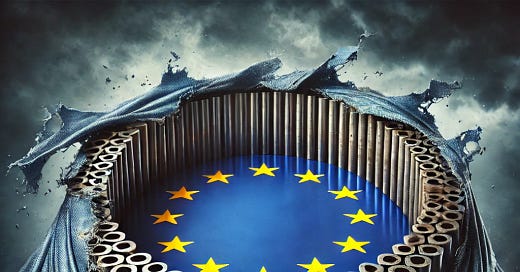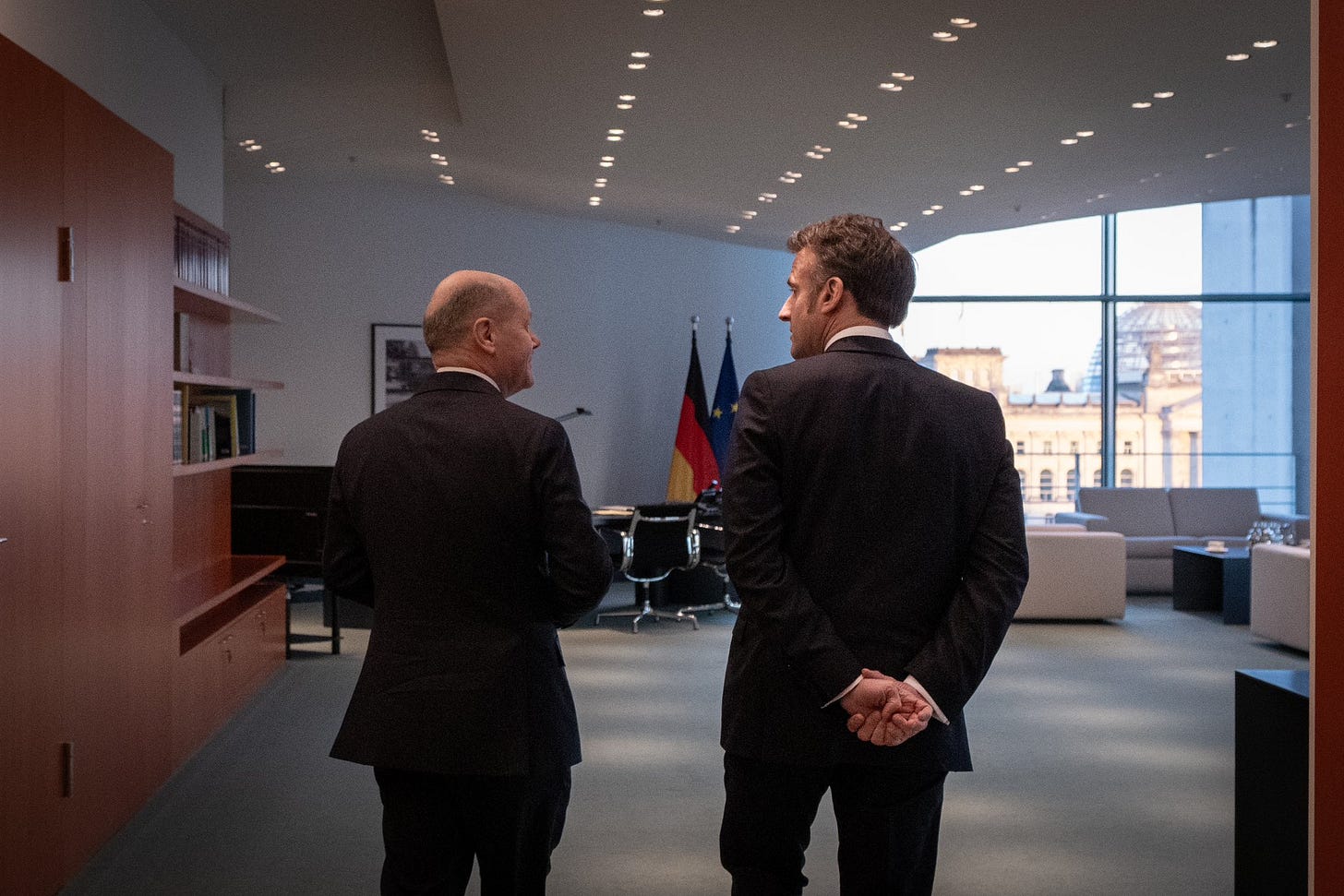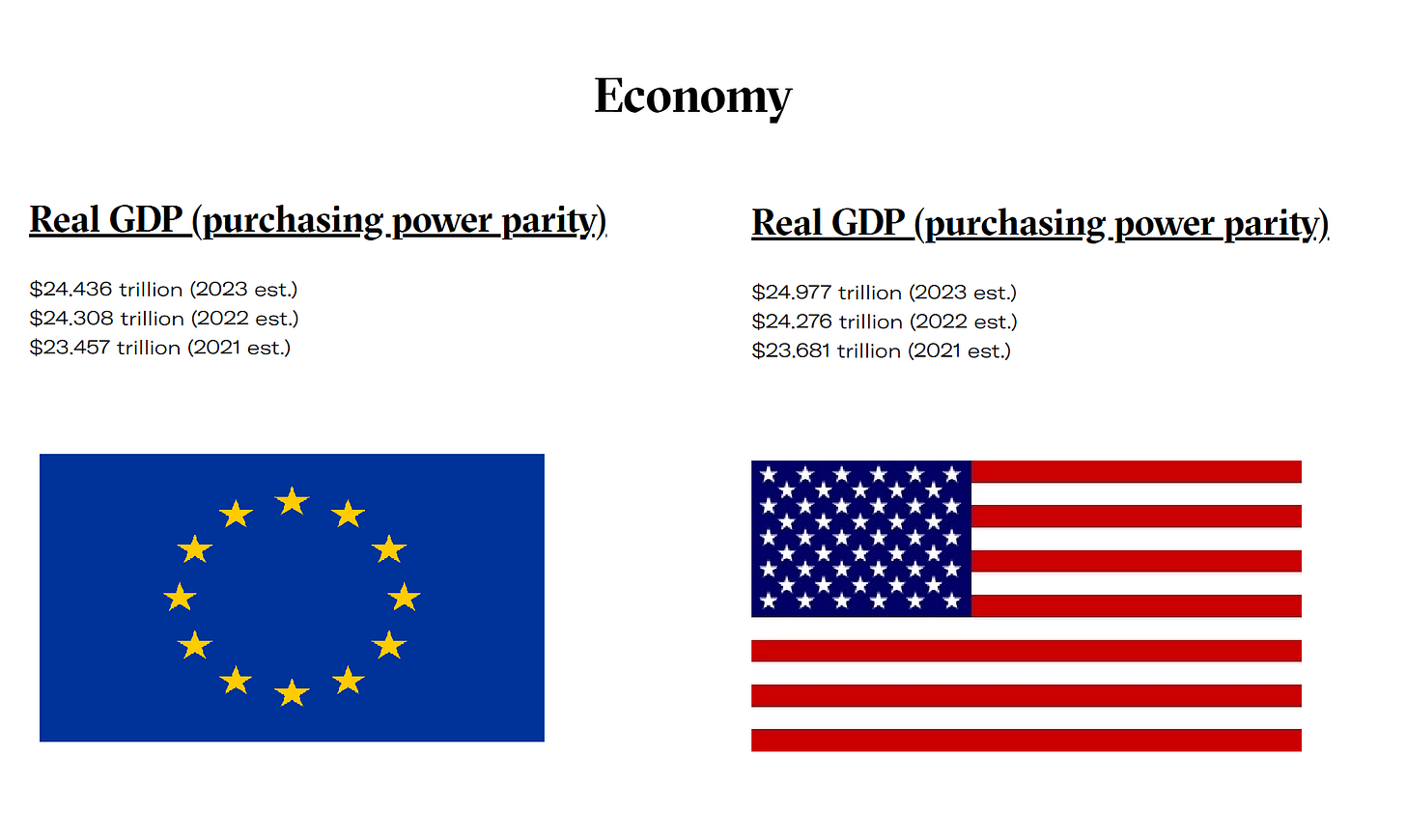Europe is waking up.
Western nations, along with the UK, are shedding their rose-tinted illusions. The message is clear: nurture the American alliance, but waste no time fortifying their own power. The usual friction between Europe's big three—Britain, France, and Germany—is fading fast, replaced by a shared sense of urgency.
Two days after the German national election concluded, incoming Chancellor Friedrich Merz wasted no time. Dazed or not, he flew straight to Paris to meet with French President Emmanuel Macron. No diplomatic dance over protocol, no need to reaffirm who outranks whom. The stakes were too high. The issues he wanted to discuss couldn’t wait.
Neither leader revealed what was said behind closed doors, but I have little doubt: Merz and Macron spoke in detail about expanding France’s nuclear umbrella over Europe.
If we were to sit down and draft a to-do list for Western Europe’s big three—Britain, France, and Germany—we’d never finish. The needs are endless, the priorities constantly shifting. But in the days following the Oval Office meeting between Trump, Vance, and Ukrainian President Zelensky, when it became unmistakably clear how the Trump administration planned to handle the global fight for democracy—when it became clear they had no issue reversing the victim-aggressor equation to suit their own agenda—my priority list wrote itself.
Each of Europe’s major powers had one core responsibility:
The British Prime Minister must lead the Coalition of the Willing.
French President Emmanuel Macron must take charge of Europe’s nuclear independence from the U.S.
German Chancellor Friedrich Merz must deliver the financial firepower to make it all possible.
This is it. If Europe delivers on these three core pillars, everything else can follow. If not, everything else will teeter on the edge of failure.
Keir Starmer has stepped up. He’s leading the Coalition of the Willing with urgency and determination. His work is far from over—and it won’t end even after the war does. Sorry, Prime Minister Starmer, you have no choice.
Friedrich Merz is halfway there. He has pulled off the near-impossible—bringing Germany’s three governing parties into alignment to remove defense spending from the country’s fiscal constraints. The lower house has passed the constitutional reform. Now, the upper house must do the same. It should pass without issue, but Merz cannot afford complacency. The scale of this decision threatens Putin directly, and with how deeply his operatives have infiltrated German politics, the fight isn’t over. Merz must stay vigilant. Every vote must be counted. Every backup must have a backup. It’s that important.
And that brings us to the second pillar: breaking Europe’s reliance on America’s nuclear umbrella. On that front, I have good news.
Seventy-two hours after the polls closed in Germany, Merz was in Paris, sitting down for dinner at the Élysée Palace with Macron. That was Wednesday, February 26, 2025. And just 21 days later, yesterday, Macron made a defining announcement: France will build a fourth nuclear-capable air base, equipped with two squadrons of the latest Dassault Rafale multirole fighters.
Europe’s transformation is happening—fast.
At Luxeuil-les-Bains Air Base, standing before French military personnel, President Macron made it official: France is expanding its nuclear deterrence.
Currently, the French Air Force operates three nuclear-capable air bases—Saint-Dizier, Istres, and Avord—home to approximately 50 two-seat Rafale B jets, each armed with ASMP-A supersonic missiles.
Now, Macron is adding 40 more Rafale jets to the mix. That’s not just an upgrade—it’s a near doubling of France’s nuclear carrier fleet. And if he’s doubling the carriers, he’s signaling an expansion of France’s nuclear arsenal itself.
Macron made this announcement at Luxeuil-les-Bains—right near the French-German border—before heading to Berlin.
That wasn’t a coincidence. That was a signal. A request from incoming Chancellor Friedrich Merz. And Macron’s message was clear: “I’m ready to do the hard stuff.”
This wasn’t an easy decision—certainly not one you’d expect to be made in just 21 days. But it was. Even with the immense stakes of establishing a new nuclear-capable base at a cost of €1.5 billion, the call was made—fast.
What I want to see next? French nuclear weapons deployed inside Germany. But that’s another battle, one tangled in bureaucratic minefields. Who controls the weapons? Who pays for it? Who makes the call in wartime? Will Germans accept French military forces stationed on their soil? These questions will trigger political tripwires. But at some point, France and Germany will have to take that leap.
For now, it can wait.
But what matters is this: Macron responded to Merz’s request—immediately and decisively. This entire analysis is based on how I am reading the situation. Neither Merz nor Macron has spoken publicly about Europe’s nuclear shift, but their actions speak louder than words. The steps they are taking indicate a clear direction. Neither man has said a word publicly, and one can understand why.
I do feel sorry for the United States. The nuclear umbrella was the glue of the transatlantic alliance. That alliance brought billions to America by keeping the European market unified under its economic and security framework. But Trump and his circle will never grasp that Europe, with a $24 trillion purchasing power parity, stands right there next to the U.S.
They’re letting it slip away.
That’s the market the United States is about to lose. Once Europe breaks free from its nuclear dependency, its market follows. American businesses won’t have the privileged seat at the table anymore—they’ll be just another competitor. And the first to feel the hit? The trillion-dollar American defense industrial complex.
The shift is already happening.
Last week, Ireland signaled its intent to purchase European-made fighter jets—not the widely renowned F-35s.
It’s also buying armored vehicles from France—not the American M113s.
Romania was in talks with the U.S. about Abrams tanks. Now? They’ve all but confirmed their purchase of K2 Black Panthers from South Korea.
Denmark wanted long-range air defense. They were expected to order Patriot missile systems—but don’t count on that happening anymore.
The chips are falling.
In 2024, nearly 50% of Europe’s defense procurement came from the U.S. That number is about to plummet.
With every jet, every missile, every billion spent elsewhere, Europe is cutting the cord. The U.S. defense industry—once fueled by European dependence—is about to take a massive hit.
The shift is irreversible. The old order is gone.








“That’s the market the United States is about to lose. Once Europe breaks free from its nuclear dependency, its market follows. American businesses won’t have the privileged seat at the table anymore—they’ll be just another competitor. And the first to feel the hit? The trillion-dollar American defense industrial complex.”
Excellent newsletter Shankar, and great updates we would never know about if we relied on the MSM.
I think Trump is finally realizing the error of its ways (or not; Trump will double down). He has galvanized Europe; in ways not achieved since WW2.
Europe and Canada are no longer buying US military equipment and weapons, instead relying on their own resources and technology. Investments in the US from Europe and Canada is waning, and European equity markets are attaining better returns than the US; the first time in several years.
Additionally, Russia is weak. We don’t even know how many of Russia’s vast nuclear arsenal are fully deployable and operational anymore, given their limited financial resources from the sanctions. After all, when a “so called” nuclear super power needs to rely on North Korea and Iranian arms, then all bets are off.
Not to mention, Russias military is depleted; they couldn’t even beat Ukraine in three years of war, and Ukraine doesn’t even have an Air Force or Navy to speak of.
Bottom line: I wouldn’t want to be Russia right now, and as for Trump and MAGA? As the wise man once said, “we shall see!”
Nice summary. And as Trump tanks the American economy and isolates America further, there are many opportunities to invest in the EU.